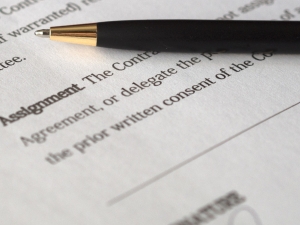
Concepts for Success: Look before you leap
June 22, 2018
By Diane Chiasson
What you need to know before signing a commercial bakery lease

Finding a space for your small bakery operation is one thing, but leasing a commercial retail bakery space will be one of your biggest operating expenses. Dozens of details could go wrong. It involves more than finding the perfect business location and signing an affordable lease; it will take careful planning, great negotiating skills, and proper budgeting to find a suitable place that will meet your needs.
Whether you are leasing a space for your new bakery, or negotiating a good lease renewal, finding the right bakery for lease comes down to three things: cost, size, and location. Here a few things to consider before you lease a commercial space for your bakery.
Work with professionals
You should never sign a lease without first having your real estate broker work through the complexities of a lease as well as negotiating a satisfactory deal on your behalf. Your broker should have in-depth knowledge of your area and should know what the retail traffic is. You will need an experienced commercial real estate lawyer to review your entire lease document and someone who will be able to help you negotiate the best terms. You don’t want a general lawyer; you need a lawyer who negotiates leases every day of the year.
Things to consider before leasing a bakery space
For many retail businesses, location can make or break the business. You will need to know everything you can about a location before you even think about leasing. Know where your customers are and be sure that your business is located in a high foot traffic area with high visibility from the street. Your retail location needs to be located in a safe area, visible and accessible to customers. It should be located near public transport and/or major highways. Pry some inside information from tenants already in the area. Introduce yourself and ask for their honest opinion of the landlord, the level of property maintenance, and the overall information about the area.
Square Footage: You will need to find out how the landlord has calculated the unit space. Is it based on the actual square footage or does it include space that doesn’t actually exist? Very often bakery and restaurant tenants pay their rent per square foot, but they seldom receive as much space as the lease agreement stipulates. Make sure that you measure your space properly. Always ask how the chargeable square footage is measured and calculated. Most commercial mall leases will include the square footage of your private retail space, plus a pro rata share of the building’s common areas such as lobbies, staircases, corridors and restrooms.
Traffic: Is there adequate foot traffic for your future bakery business? If you are leasing a retail space, the landlord should give you an accurate count of how many cars drive by each day. If they don’t have this information, grab a coffee, sit down in front of your potential retail space, and do a count on your own. You can also do an online search for general demographics of an area/city or ask the municipal government if they have such information.
Parking: Check out if there is enough parking nearby your prospective retail space. Explore nearby parking lots on different days and different times of the day.
Layout: You don’t want to pay for space that you won’t need, but you do want to have enough space to accommodate your future bakery’s growth. You should consider working with a designer just to get a rough sketch of what your bakery will look like before signing the lease. This exercise will give you an idea if the space is right for you. Think of all the aspects of this floor plan: back and front kitchen space, sales floor, cash area, to-go area, sitting area, stockroom, office, and bathrooms.
Making improvements: Is this retail space move-in-ready, or are you going to pay a lot more for a similar space that needs remodeling? If you need to alter the space to suit your business needs, make sure your lease outlines what alterations you are allowed to make. Write down all the improvements that will be made, and which party will have to pay for these improvements. You will specify who will own these improvements (normally the landlord does) and if you will need to return the space to its original condition when your lease expires. Whatever you do, make sure to allot a design budget to make your bakery shop visually appealing.
Signage: You should have a clear understanding of what kind of corporate signage is permitted outside of your property, such as sale signs, open/closed signs, or other signs in your storefront area.
Maintenance and repairs: Commercial leases often require the tenant to pay for all maintenance, except for that of exterior walls, roof and common areas.
Put everything in writing: Remember that the lease that you will sign has been written to protect the landlord’s interest rather than yours. You’ll want to ensure that all verbal agreements and promises as well as your personal interests are included in this written agreement. By putting everything in your written agreement you will avoid unnecessary problems in the future.
Diane Chiasson, FCSI, president of Chiasson Consultants Inc., has been helping foodservice, hospitality and retail operators increase sales for over 30 years. She is recognized as the industry leader in providing innovative and revenue-increasing foodservice and retail merchandising programs, interior design, branding, menu engineering, marketing and promotional campaigns, and much more. Contact her at 416-926-1338, toll-free at 1-888-926-6655 or chiasson@chiassonconsultants.com, or visit www.chiassonconsultants.com
Print this page
Leave a Reply